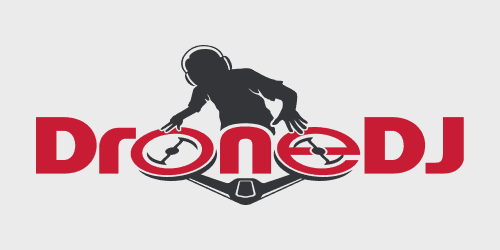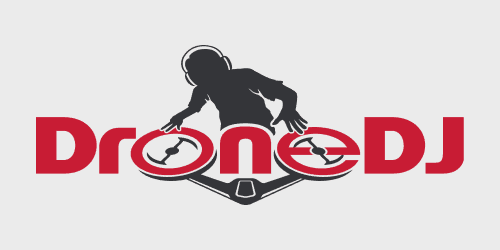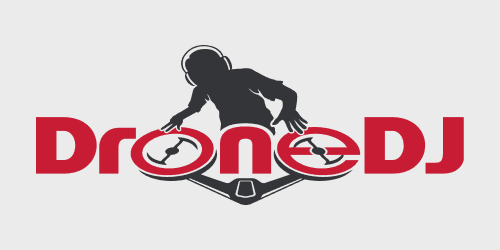
A couple of days ago, we wrote about a leaked US government memo that exposed the Department of Interior’s stance on Pentagon-approved Blue sUAS drones. The internal memo verified by the Financial Times revealed that following a ban on China-manufactured drones, the DoI is being forced to spend eight to 14 times more for machines that were only 20% as effective. It was a scathing memo, alright. So now, a lobby group consisting of US-based drone manufacturers and a Europe-headquartered open-source software developer is hitting back.
What is American Drone Alliance?
The group is called American Drone Alliance and has UAS companies Skydio, Teal, and Auterion as its core. A quick internet search will tell you that this group has zero online presence — pretty strange for this day and age, we think. There is no publicly available information about its origins, mission, workings, or even how someone can contact them or become a member.
We’ve left a note to Skydio for clarification, and at the time of publishing this post, have yet to hear back.
Response to leaked Interior Department memo
In the meantime, let’s see what American Drone Alliance has to say about the memo that DoI sent to the incoming Biden administration in January:
[The] Financial Times piece on Chinese drones mischaracterizes the current domestic drone marketplace and fails to acknowledge the widely-recognized national security threats posed by Chinese drones.
While you cannot put a price tag on national security, the reality is that the American-made drones selected by the Department of Defense are in fact cost-competitive with Chinese alternatives. More importantly, they have been subjected to demanding cybersecurity reviews and deemed safe for use by government agencies. They are rugged and ready, capable of operating in the most demanding environments.
It is impossible to talk about the price of Chinese drones without talking about the Chinese Communist Party. For years, the Chinese government has apparently supported Chinese drone manufacturers by engaging in predatory pricing. As former DOD Under Secretary of Defense Ellen Lord made clear in 2019, ‘DJI dumped so many low-priced quadcopters on the market and we then became dependent on them both from the defense point of view and the commercial point of view.’
There is no question that Chinese-made drones are a serious national security risk. The threat from DJI, Autel, and other China-based drones stems from their obligation to comply with any and all Chinese Communist Party (CCP) requests for information under Chinese national security law. DJI’s close relationship with the CCP is broadly known, and their role in supporting abhorrent human rights violations against the Uighur people earned them a place on the Department of Commerce’s Entity List late last year. Against that backdrop, it would be unconscionable for government agencies to use drones that provide the Chinese government a pathway to infiltrate US networks, steal confidential information, and place our national security at risk.
National security or trade war?
We do agree, you cannot put a price tag on national security. But security risks can come from anywhere. The recent SolarWinds intrusion that compromised email accounts belonging to the Department of Homeland Security has taught us that much. If you gauge a company’s trustworthiness based on its country of origin, you may be lulled into a false sense of security.
And let’s not forget that a Pentagon audit has cleared at least two DJI drones for US government use.
And then, there is this interview that US Treasury Secretary Janet Yellen gave to the New York Times only days before the DoI memo got leaked. In this interview, Yellen questions the merits of the trade agreement between the United States and China, saying:
My own personal view is that tariffs were not put in place on China in a way that was very thoughtful with respect to where there are problems and what is the US interest. Tariffs are taxes on consumers. In some cases, it seems to me that we did hurt American consumers, and the type of deal that the prior administration negotiated really didn’t address in many ways the fundamental problems we have with China.
DJI’s side of the story

So, it only made sense that we reach out to DJI to see if they had any comments on the statement put out by the American Drone Alliance. And here’s what they told us:
Allegations of ties with the Chinese government
DJI is a privately held company, not a state-owned enterprise. DJI was founded in 2006 by Frank Wang during his time studying at Hong Kong University of Science and Technology. The company is now headquartered in Shenzhen, known as China’s Silicon Valley for the many global tech firms based there. DJI is managed and run by Wang and his founding colleagues. DJI did not receive any Chinese government investments, but American venture capital firms invested more than $100 million.
Allegations of sharing data with CCP
Because DJI designs privacy protections into our systems, we cannot access any flight logs, photos, or videos, unless customers voluntarily share them with us. Even when presented with a lawful request for information, DJI cannot provide data that we don’t have. We require all governments to produce a warrant, subpoena, or other formal legal requests, which we evaluate under relevant law before producing any customer information. This commitment was proven in the investigation of one of the world’s most significant drone incidents. When a DJI drone hit a US Army helicopter over New York in 2017, the US National Transportation Safety Board subpoenaed DJI, but we had no data to provide.
Allegations of cybersecurity threats
All DJI drones provide data security protections for their users by empowering them to decide whether and when their drone data is shared externally. Local Data Mode provides government and commercial customers with additional assurance that data generated during drone operations is effectively protected. It is an internet connection “kill switch” feature within DJI’s command and control mobile applications that, when enabled, prevents the app from sending or receiving any data over the internet. With this feature enabled, drone operators can easily and effectively cut off all network connections from DJI’s mobile applications and prevent any data from being transferred to DJI or other parties.
Allegations of DJI predatory pricing
Long-time market observers know that DJI has never sold the least expensive drones available, but instead has provided premium products at reasonable prices. A US federal court rejected allegations of unfair pricing last year, ruling that DJI’s American sales practices have been “fully consistent with robust competition in a growing market.”
Arguments, counterarguments… your take?
So there you have it: Both sides of the story. We would love to know what you think about this, so drop us your view in the comments below!
We, meanwhile, stand by our stance that it’s not the country of origin that makes a product secure or insecure; it’s how the product itself is manufactured and how it performs in the field. DJI has had a busy couple of years on the reputation management front, pushing back against allegations. And with competition in the industry getting more stifling by the day, we can only hope to steer the conversation away from the politics and back to the merit of a product.
Also, stay tuned for more info on American Drone Alliance!
FTC: We use income earning auto affiliate links. More.







Comments